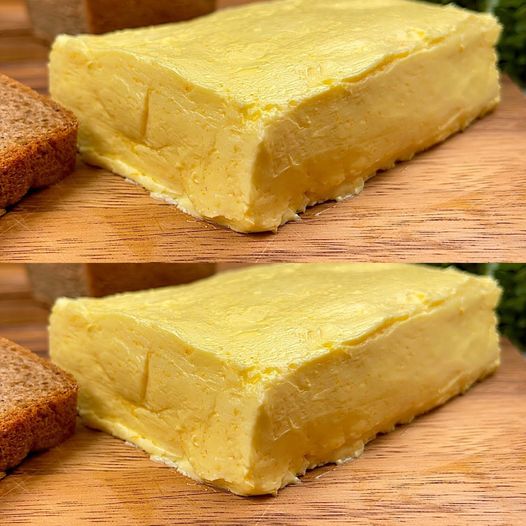ADVERTISEMENT
Watch for Separation: Continue whipping until the cream breaks down further and separates into butterfat and buttermilk. This will happen after about 8-10 minutes of whipping. You’ll know it’s ready when you see yellow solid bits (butter) and a liquid (buttermilk) separate.
Drain the Buttermilk: Once the butter has separated, use a cheesecloth or a fine mesh sieve to drain off the buttermilk (save it for baking delicious pancakes or biscuits!).
Rinse and Press: Transfer the butter solids to a clean bowl. Rinse the butter with cold water, pressing the solids with a spatula to remove as much buttermilk as possible. This washing step is crucial because any remaining buttermilk can make your butter go rancid faster.
Shape and Store: Once your butter is rinsed, you can shape it into a block or any form you prefer. Wrap it in parchment paper or store it in an airtight container. Refrigerate and use within a few weeks.
Why Make Butter at Home?
Flavor and Freshness: Homemade butter has a fresher, creamier flavor that can’t be beaten.
Cost-Effective: Making butter at home can be cheaper, especially if you buy cream in bulk.
Customizable: You can add salt, herbs, or spices to customize your butter to your taste preferences.
Homemade butter is not just a cost-saving measure—it’s a delightful way to bring a touch of homemade charm to your meals. Whether spread on fresh bread or used in your favorite recipes, the taste of homemade butter is sure to impress. Give it a try and taste the difference for yourself!
ADVERTISEMENT
